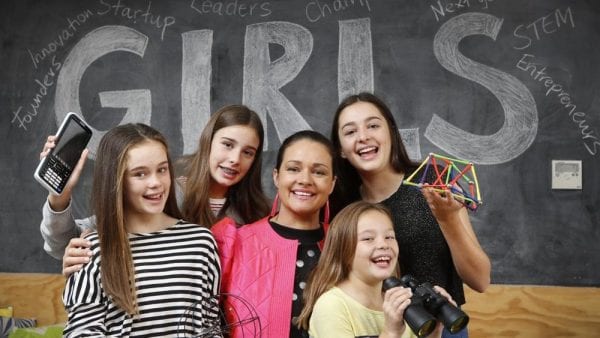During the parent information night a few weeks ago, I spotted a good mix of women and men in the room. There was nothing to suggest that email communications would be a dad-free zone, as Lisa Lintern wrote about recently and my colleague Georgie Dent followed up on.
However, as the daytime orientation activities began, the proportion of dads dropped off significantly.
I shared on social media that I’m “almost a school mum”, marking our transition into a new zone of parenting and life. One that looks set to be, from the outset, more affordable than the fees we are paying on childcare, but one we actually have no idea how to navigate — given school hours don’t align with work, and places for before and after school care are competitive and limited.
It’s also a new world that adds further elements to already busy days: school lunches, drop offs and pick ups, homework and participating in the school community. This work is still largely women’s work, making up a large portion of the unpaid labour undertaken in Australia, which in Victoria alone was recently estimated to be worth $205 billion.
So it was difficult to ignore Madeleine Grummet’s comment on Twitter following Georgie’s story last week, noting that she has four kids in school but will not refer to herself as a ‘school mum’.
My 4 kids go to school but I’m no “school mum”.
It’s an offensive term that reinforces gender stereotypes, excludes Dads + calcifies cultural architecture that says Mums should continue to carry the lions share of care for school kids.https://t.co/PgZCcVC3U3 via @WomensAgenda— Madeleine Grummet (@MadsGrummet) November 21, 2018
Madeleine is the co-founder and CEO of girledworld which aims to change the future of work one girl at a time, and has been running some massive events across the country while helping to build global role models with its World of Work platform, giving girls access to the stories, wisdom and skills they’ll need to lead and succeed in their future careers.
She is the mother of four daughters in school (pictured above), and when I spoke to her about the comment she told me that, given she’s spent a lot of time in the school environment, it stems from her frustration at women being expected to deliver so many of the services required to make a school run effectively, with dads not always having enough opportunities and encouragement to play a part.
“Schools haven’t moved to reflect what’s happening in society and culture, with more women being in the workforce than ever before,” she says.
Madeleine is concerned about the fragmentation of the school community into those who work and those who don’t or cant. She believes while mums who are carrying this load do an excellent job, they can’t do all the heavy lifting and this unpaid work might be limited their capacity elsewhere. And she worries about the access points available for dads who want to get involved.
“I think it also ties into that broader issues that women are still carrying the currency of care, for the elderly, the young, and mostly for women today even if you are like me working and juggling a big family, there are all those logistics, the mental load, the administration of the life of the family that goes to the mum.
“Often it’s all these small things, but the sum of all their parts sees women carrying this load of responsibilities that are going unpaid and undervalued.”
Of course schools need this help and are reliant on the wider community to run their full list of activities — but Madeleine believes the vernacular around how it’s done, as well as the expectations on who does it, needs to shift if we are ever going to shift the status quo on unpaid work.
“The school is a village. It takes a village to raise a child, we need those villages to be cooperative, helpful and accessible for anyone to get involved,” she said.
“We have this huge resource we are not leveraging. There are capable, loving dads out there who are not being asked enough to come to the table.”
Part of the solution could involve exploring what’s going internationally, particularly in country’s known to be leading the way on gender equality, and looking at structural changes that can enable more flexibility for dads.
In Sweden, a more equal system of parenting starts early, with a generous 480 days of paid parental leave offered to parents that can be taken any time up until a child turns eight. The leave also applies to each child, meaning it can be accumulated into the school years. Ninety of those days are reserved exclusively for each parent, and can not be transferred to the other. Meanwhile, parents are also offered a generous system of “temporary parental leave” to help cover sick days.
That’s seen men in the country taking nearly a quarter of all leave, which Sweden wants to improve on but would be a remarkable goal to aim for in Australia.
Madeleine’s next girledworld summit is being held in February, aiming to offer a transformative experience for teenage girls regarding the future of work. Photo above courtesy of Madeleine’s website and first published by the Sun Herald.


